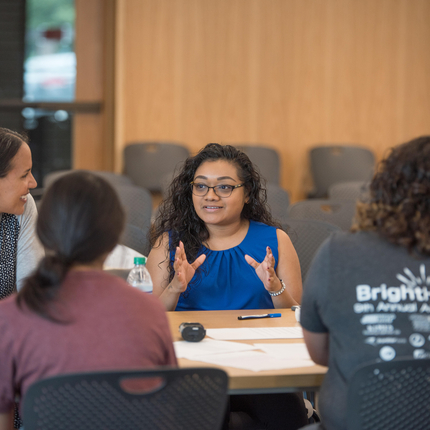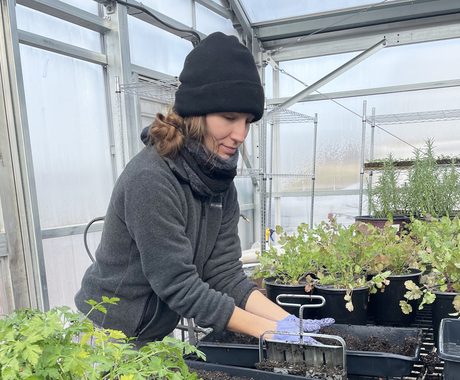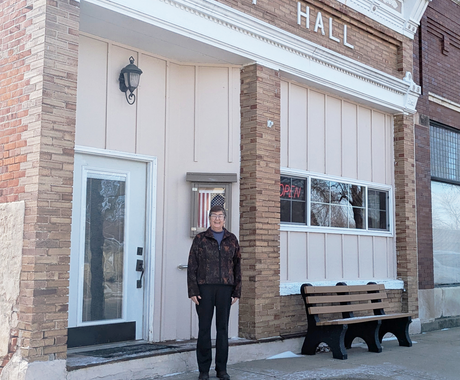Para la versión en español, oprima aquí.
Jessie Eby contributed to this blog.
Growth and progress, especially in small communities, hinge on reliable leadership. As rural America becomes increasingly diverse, leaders should consider how to effectively lead and manage groups as they work toward a goal. This is where intercultural leadership comes in. Intercultural leadership is a skill that can be developed, but it takes thought and intentionality.
What is intercultural leadership?
Intercultural leadership is the ability to effectively lead and manage a diverse group of people. Leaders with strong intercultural skills respect and celebrate their team members’ cultural backgrounds and understand how to navigate cultural differences. These leaders foster inclusivity and create an environment where all team members feel valued and understood.
Why is intercultural leadership important?
Our rural communities are becoming more diverse than ever. Leaders with intercultural skills are vital to celebrating diversity, navigating conflicts, and creating strong communities that feel welcoming and safe for all.
Economic advantage
Embracing intercultural leadership can also yield economic benefits for rural Nebraska. Diverse communities attract a broader range of talents and skills, which helps build a dynamic workforce capable of addressing a variety of challenges. Additionally, businesses that prioritize diversity and inclusion often experience increased creativity, improved decision-making, and enhanced customer relations, contributing to economic prosperity.
Cultural enrichment
Intercultural leadership enriches our communities by celebrating differences and fostering mutual respect. Through cultural exchange programs, community events, and educational initiatives, leaders can cultivate a more inclusive and vibrant community where everyone feels valued and empowered to contribute.
Building stronger rural communities
Intercultural leadership promotes innovation and creativity by bringing together diverse perspectives and ideas. In a rapidly changing economic and social landscape, this can help rural communities adapt and thrive.
What are some traits of good leaders?
There is no mold for strong leaders, but they often share common traits. Good leaders are visionaries who can inspire others to take action. A strong leader realizes they can’t do it all on their own and recognizes the importance of their team. They create a culture where their team is comfortable giving them honest feedback, even when it means they disagree, and truly listen to understand and grow as a leader. Good leaders are also adaptable problem-solvers who navigate challenges as they arise. They act with integrity and transparency, driving innovation while being resilient in the face of setbacks. Effective leaders are self-aware, continuously improving themselves, and encouraging others to reach their full potential.
It’s worth noting that leadership isn’t limited to elected public positions. Leadership is more about actions, values, and impact than titles or formal roles. But you can also help identify and address barriers in the way for yourself or others to run and be elected to local bodies.
Anyone who inspires, motivates, and influences others to achieve a common goal can be considered a leader. Whether you lead a team, start a community initiative, or advocate for a cause, you can be a leader in your community.
How can you become a strong intercultural leader?
To effectively lead diverse teams, promote collaboration, and achieve common goals in multicultural settings, you’ll want to master the following:
- Cultural competence: Do you understand different cultural norms, values, communication styles, and perspectives?
- Cross-cultural communication: Can you communicate effectively across cultural boundaries?
- Adaptability: Can you be flexible with your leadership style to accommodate cultural differences?
- Empathy: Are you able to understand and appreciate the experiences and perspectives of individuals from different cultural backgrounds?
- Conflict resolution: Can you promote understanding and collaboration among diverse communities and manage conflicts in a culturally sensitive manner?
- Inclusivity: How can you foster an inclusive environment where all individuals feel valued and respected?
- Self-awareness: Do you understand your own cultural biases, assumptions, and privileges and how they may affect your interactions with others?
How can you get involved in leadership within the community?
The best leadership roles tend to happen organically. Follow your interests and passions to local organizations where you can volunteer your time or support the causes close to your heart. The more you care about an initiative, the easier it will be to stay involved.
You don’t have to lead an initiative to be a leader within your community. You could simply welcome newcomers and help them to find their places. It’s important to help new community members make connections in their new homes, and in doing so, you can establish yourself as a good leader.
Intercultural leadership is essential for building strong, vibrant, resilient rural communities. By developing a culture of understanding and appreciation for diversity, leaders can improve economic prosperity and enrich our communities to build a stronger, more cohesive rural Nebraska. Intercultural leadership is not just a skill; it's a mindset, a commitment, and a pathway toward a more vibrant and inclusive future for all.





